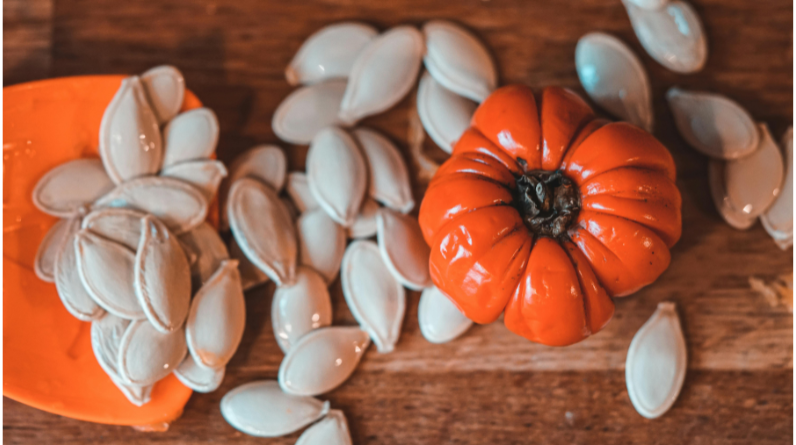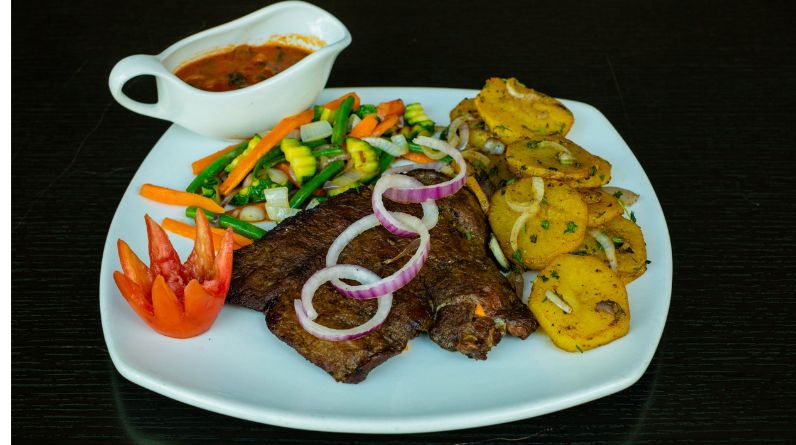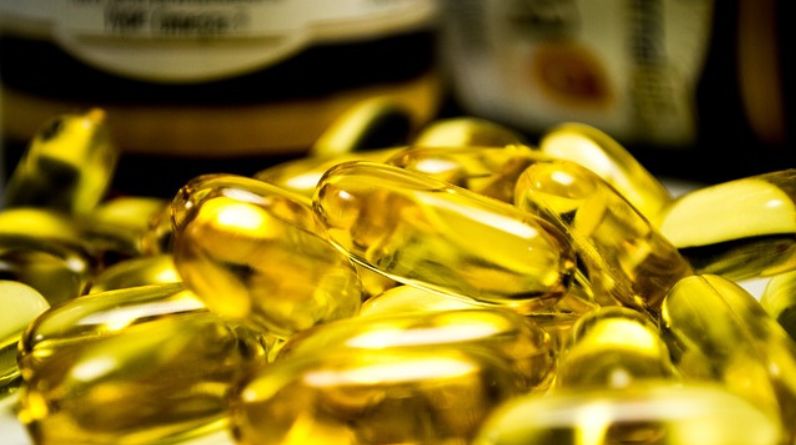
Pumpkin seed protein has gained prominence in the world of plant-based proteins due to its nutritional value and versatility. This protein source, derived from the seeds of the humble pumpkin, not only adds variety to the diet but also provides numerous health benefits. Let’s go into the complexities of pumpkin seed protein, investigating its nutritional composition, potential benefits, and how it may be easily absorbed into a variety of lifestyles.
Understanding Pumpkin Seed Protein: A Nutritional Overview
Pumpkin seed protein, which is commonly extracted using a cold-press method, emerges as a plant-based protein resource. It has an excellent nutritional profile that includes necessary amino acids, healthy fats, fibre, vitamins, and minerals. As a result, it is a well-rounded dietary complement for individuals looking for a nutrient-dense option.
Nutritional Composition: Amino Acids and Beyond
Pumpkin seed protein is distinguished by its amino acid makeup, which includes both essential and non-essential amino acids. The existence of these protein building blocks is critical for muscle development, tissue healing, and overall metabolic processes in the body. Furthermore, this plant-based protein source contains healthy lipids, specifically omega-3 fatty acids, which promote heart health and overall well-being.
Rich in Antioxidants and Micronutrients
Aside from protein, pumpkin seed protein is high in antioxidants such as vitamin E and phenolic compounds. Antioxidants are essential for neutralizing free radicals in the body, promoting cellular health, and potentially lowering the risk of chronic diseases.
Potential Health Benefits of Pumpkin Seed Protein
- Muscle Building and Repair: Pumpkin seed protein has a remarkable amino acid profile, which includes critical branched-chain amino acids (BCAAs) such as leucine, isoleucine, and valine. Because these are necessary for muscle protein synthesis, pumpkin seed protein is an excellent alternative for people who engage in regular physical activity. Whether you’re an athlete or just starting out on your fitness journey, the amino acids in this protein help with muscle development and tissue repair after exercise.
- Heart Health: Pumpkin seed protein contains omega-3 fatty acids, which are believed to protect the heart. These good fats help to keep cholesterol levels in check, reduce inflammation in blood vessels, and promote general cardiovascular health. Incorporating pumpkin seed protein into your diet might be a delicious method to support heart health.
- Digestive Wellness: Pumpkin seed protein contains fibre, which is good for digestion. Fibre increases stool bulk, supporting regular bowel motions and reducing constipation. Furthermore, fibre acts as a prebiotic, feeding the beneficial bacteria in the gut and promoting a healthy microbiome. A healthy gut microbiota is linked to a variety of factors of overall health.
- Blood Sugar Control: Preliminary research suggests that pumpkin seed protein may help manage blood sugar levels. The protein, along with other components found in pumpkin seeds, may help with insulin sensitivity. This potential benefit makes it an appealing option for people who are dealing with illnesses such as diabetes. However, for personalised guidance, it is critical to consult with a healthcare practitioner.
- Weight Management: Protein is well-known for its ability to promote feelings of fullness, and pumpkin seed protein is no different. This protein source can help with weight management by increasing satiety. Feeling full over extended periods of time may result in lower overall calorie intake, assisting people attempting to lose weight or simply regulate their appetite.
Incorporating Pumpkin Seed Protein into Your Diet
Pumpkin seed protein’s mild, nutty flavor makes it a versatile addition to various culinary creations. It can be blended into smoothies, stirred into yogurt, incorporated into baking recipes, or sprinkled on salads for an added protein boost.
Pumpkin Seed Protein Side Effects
Pumpkin seed protein is generally well-tolerated for most individuals when consumed in moderate amounts. However, as with any dietary supplement, there is the potential for side effects, although they are typically rare. Here are some considerations:
- Allergic Reactions: Individuals with known allergies to pumpkin seeds could experience allergic reactions to pumpkin seed protein. Symptoms may include itching, swelling, rash, or difficulty breathing. If you have a known allergy to seeds, it’s essential to consult with a healthcare professional before incorporating pumpkin seed protein into your diet.
- Digestive Issues: Some individuals may experience digestive discomfort such as bloating, gas, or upset stomach when introducing new sources of protein into their diet. Gradually incorporating pumpkin seed protein and ensuring adequate hydration can help mitigate these effects.
- Interactions with Medications: If you are taking medications or have existing health conditions, it’s advisable to consult with a healthcare provider before adding pumpkin seed protein to your diet. There is a potential for interactions, especially if you have conditions that affect mineral balance or if you are taking medications that may be impacted by the nutrients in pumpkin seed protein.
- Excessive Caloric Intake: While pumpkin seed protein can be a healthy addition to your diet, excessive consumption without considering overall caloric intake could contribute to weight gain. It’s essential to incorporate it as part of a balanced diet.
Frequently Asked Questions
1. Is pumpkin seed protein a complete protein?
Yes, pumpkin seed protein is considered a complete protein, boasting all essential amino acids necessary for the body’s functions. This categorization places it among the select plant-based proteins that provide a full spectrum of amino acids, making it an excellent choice for those seeking comprehensive nutritional support without relying on animal products.
2. How does it compare to other plant-based proteins?
Pumpkin seed protein stands out favorably among other plant-based proteins. Beyond its status as a complete protein, it offers additional nutritional benefits such as antioxidants and healthy fats. This nutrient density makes it a wholesome and well-rounded choice for individuals looking to enhance their overall nutrition.
3. Can pumpkin seed protein help with weight loss?
Certainly. The combination of protein and fiber in pumpkin seed protein makes it a valuable ally in weight loss endeavors. By promoting a sense of fullness, it aids in appetite control, potentially contributing to more effective weight management.
4. Is it suitable for those with nut allergies?
Absolutely. Pumpkin seed protein is derived from seeds, not nuts, rendering it generally safe for individuals with nut allergies. It provides a protein-rich option without triggering allergic reactions commonly associated with tree nuts or peanuts.
5. Does it have a strong taste?
No, pumpkin seed protein boasts a mild, nutty flavor. This subtle taste profile makes it incredibly versatile, seamlessly integrating into various dishes without overpowering existing flavors. It complements both sweet and savory recipes, enhancing nutritional content without compromising taste.
6. How is pumpkin seed protein extracted?
Pumpkin seed protein commonly undergoes a cold-press extraction process. This method ensures that the protein retains its nutritional integrity by avoiding excessive heat processing. The result is a high-quality protein supplement with preserved bioactive compounds.
7. Is it suitable for a vegetarian or vegan diet?
Absolutely. Pumpkin seed protein aligns perfectly with both vegetarian and vegan diets. It serves as a valuable plant-based protein source that meets the dietary principles of individuals committed to these lifestyles.
8. Can it be used in cooking and baking?
Absolutely. Pumpkin seed protein is incredibly versatile, seamlessly integrating into various culinary creations. It blends effortlessly into smoothies, enriches soups or stews, and can be incorporated into baked goods like muffins or energy bars for an added protein boost.
9. Does pumpkin seed protein support hair and skin health?
Yes, the amino acids found in pumpkin seed protein contribute to the health of hair and skin. Additionally, the presence of antioxidants in this protein source supports skin health by neutralizing free radicals, contributing to a more youthful complexion
10. Can it be consumed by individuals with gluten intolerance?
Certainly. Pumpkin seed protein is naturally gluten-free, making it a safe and suitable option for individuals with gluten intolerance or sensitivity. It provides an alternative protein source without the concerns associated with gluten-containing grains, ensuring broad dietary compatibility.






